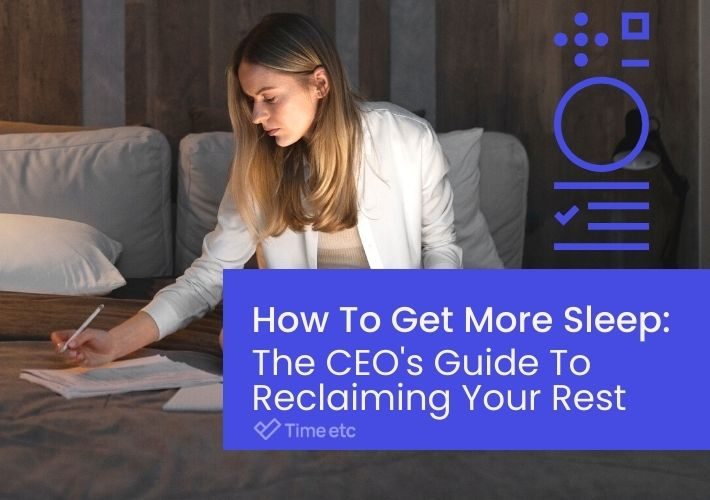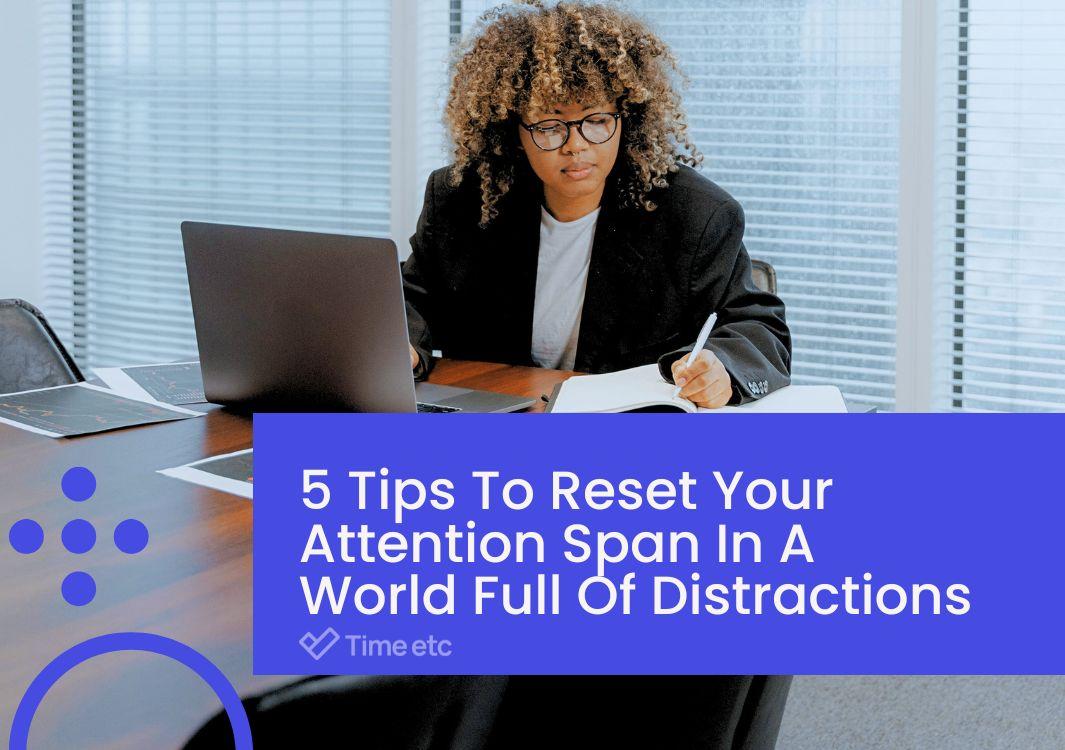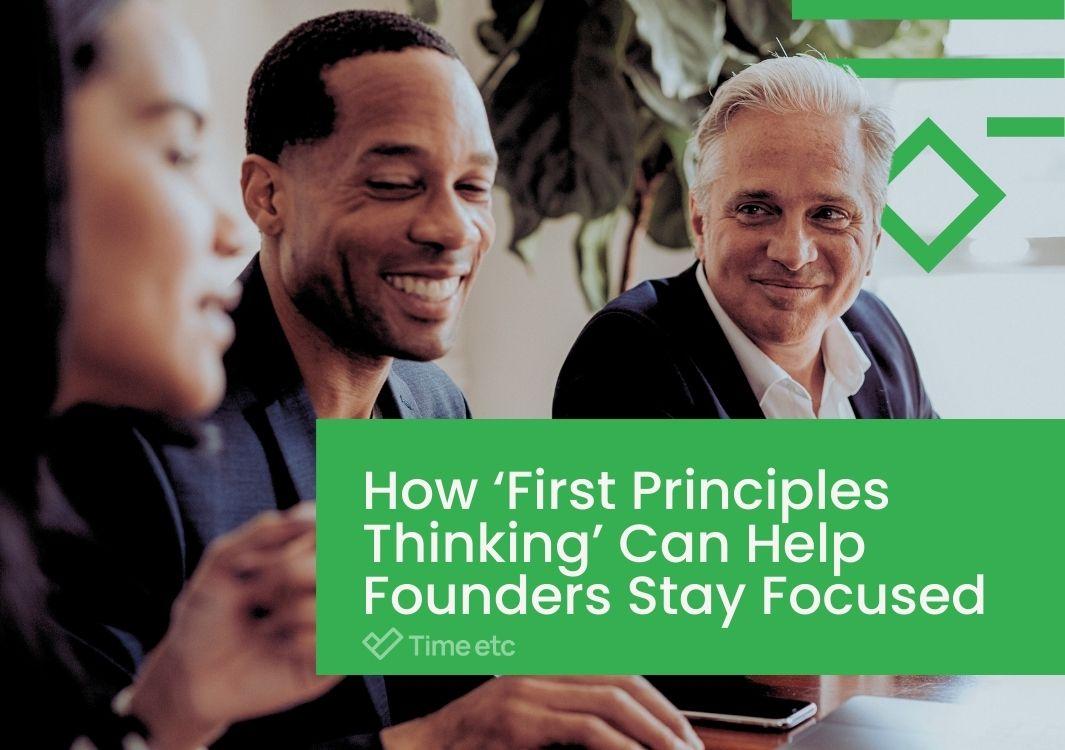According to recent research, around 30% of adults in the U.S. are not getting enough sleep. And for business owners, this number is higher still—approximately half of all CEOs report getting less than six hours of sleep per night.
Sleep is crucial for everyone's overall health and well-being, but it becomes even more critical for those with the added responsibility of running a company. If you’re not getting as much quality sleep as you need, it could be putting a strain on your business.
So whether your busy schedule's been skewing your sleep patterns, or you just can't switch off no matter how tired you feel, these simple strategies will help you confront the grim specter of sleep deprivation and bring the best version of yourself to work each day.
Let's get started!
What sleep deprivation means for business owners
The Huffington Post founder Arianna Huffington likens sleep deprivation to smoking—once glamorized but now recognized as harmful. She doesn't mince her words, as she says, “Sleep is not negotiable. It’s not optional. It is the foundation of a healthy, productive, and happy life.”
But what can sleep deprivation cost you as a business owner? According to experts, the answer is "A lot."
Your health
If you're not getting enough sleep, your health usually takes the first hit. According to the Centers for Disease Control, sleep deprivation can lead to heart attacks, strokes, type 2 diabetes, high blood pressure, and obesity.
And that stress you've been feeling? It could be that your body is overproducing cortisol—the stress hormone—in response to your lack of sleep.
Excess cortisol can also wreak havoc on your immune system, opening the door to colds and infections.
Your cognitive abilities
The Harvard Medical School's Division of Sleep Medicine has confirmed that sleep deprivation can seriously hinder your cognitive abilities—the very things that make you such a savvy business owner. When you're low on sleep, your concentration is often the first to go, leaving your working memory straggling not far behind. Your ability to crunch numbers, reason logically, and make sound judgments could take a nosedive.
But perhaps the most alarming impact for you as a business owner is how sleep deprivation can cloud your innovative thinking. One survey shows that when you’re sleep-deprived, your ability to come up with the best venture ideas is impaired. It becomes difficult to analyze business opportunities as you’re likely to make rookie mistakes.
A clear mind
Think of sleep as your brain's janitorial staff, clocking in when you clock out for the night. It's the perfect time for your brain's clean-up system, the glymphatic system, to swing into action.
This complex system removes the soluble proteins and metabolites that gather in your brain during waking hours. But that's not all; it also helps distribute essential compounds like glucose, amino acids, lipids, and neurotransmitters within your brain.
This cleaning and restocking only happen when you're asleep. So, if you're skimping on shut-eye, your brain becomes a crowded, cluttered mess of toxic proteins. This cerebral 'junk' can blur your thinking, slow your problem-solving, and even put a dampener on your creativity.
See: 6 Steps To Get Back On Track After A Mental Block

What is stealing our sleep?
As research findings show, it’s an unfortunate reality that business owners are significantly more likely to experience sleep issues compared to the average person. But why is this?
Not prioritizing sleep
It's easy to get caught in the trap of always putting your business first, pushing sleep to the back burner. But this constant hustle is stealing your precious sleep.
As an adult, you need at least seven hours of sleep. Now, if you opt to sleep just five hours, you might think you've got a bonus of two hours—fourteen extra hours a week! It's tempting to see this as a golden opportunity to get more work done.
But while it might feel like you're getting ahead, you're actually setting yourself back. We only have so many hours in a day, and the more we spend working will inevitably mean less time for everything else, including the time your body and mind desperately need to recharge. Work stress and mental stimulation can also make it harder to unwind, making your already shortened sleep window even less effective.
Stress
Whether you're juggling tight deadlines, managing a lean budget, or navigating the uncertainties that come with running your own business, stress seems to be an unwelcome yet constant companion for many entrepreneurs.
Stress triggers your body's fight-or-flight response, releasing hormones that heighten your senses and keep you alert. One sleep expert explains that high-stress levels impair your sleep by fragmenting it and prolonging the time it takes to fall asleep.
Revenge bedtime procrastination
Have you ever found yourself aimlessly scrolling through social media, putting on "just one more" episode of your favorite show, or just doing anything other than going to bed? This is revenge bedtime procrastination.
It's the act of delaying sleep to claw back time for leisure or 'me time' activities that are lost during the day. Research on this subject is still in its infancy, but most experts agree that those with high-stress, busy lives and demanding schedules are most likely to experience this.
Long hours spent at work leaves virtually no time for entertainment or relaxation if you also want a full night’s sleep, so it's easy to understand why business owners can be particularly susceptible.
Every minute you procrastinate on sleep, you're borrowing against your productivity and well-being for the next day. Over time, those minutes can lead to chronic sleep deprivation, with all its associated physical health and cognitive impacts.
Exercise (either too much or too little)
Exercise is a powerful ally for sleep, but like all good things, it's about balance. Too much or too little can rob you of your much-needed sleep.
On the one hand, a sedentary lifestyle, spent behind desks or in endless meetings, can leave your body with pent-up energy that makes it hard to drift off. It's this very reason that can make it tempting to exercise late in the day, in an attempt to tire ourselves out ready for when our heads hit the pillow.
However, excessive workouts or strenuous exercise too close to bedtime can rev up your body when you need it to be winding down. The adrenaline rush, increased heart rate, and elevated body temperature can interfere with your body's natural sleep signals, making it harder to fall asleep.
Caffeine
It's no secret that most people turn to a cup of coffee or an energy drink to kickstart their day or to power through when deadlines are looming.
The average American consumes 2.1 coffee drinks per day, and that number only rises with age. But here's the kicker—caffeine can linger in your system for up to six hours. That afternoon pick-me-up might just be the culprit behind your restless nights.
Caffeine blocks sleep-inducing chemicals in the brain and ramps up adrenaline production. It's no surprise, then, that it can make it hard to unwind, delay the timing of your body clock, and reduce total sleep time.

How to get more quality sleep each night
Quality sleep and entrepreneurial success are not mutually exclusive. Make sure you’re getting enough sleep tonight by following these tips to get started on your journey to better rest.
Respect and prioritize your sleep needs
Contrary to what hustle culture would have you believe, some of the most successful entrepreneurs in the world are vocal advocates for the power of a good night's sleep. They regard it as non-negotiable.
Amazon founder Jeff Bezos emphasizes, “Eight hours of sleep makes a big difference for me, and I try hard to make that a priority.” He understands that his performance is tied to his well-being, and he prioritizes rest to make sure he's always on top of his game.
And let's not forget about Bill Gates, the Microsoft co-founder, who once lived on catnaps during the company's early days. Now, he appreciates the value of sleep in maintaining his creativity and energy, stating, “I like to get seven hours of sleep a night because that’s what I need to stay sharp, creative, and upbeat.” So, if these high-achievers have made peace with prioritizing sleep, maybe it's time for you to do the same.
This shift in mindset is the first step. Recognize the value of rest and prioritize sleep as integral to your personal well-being and business success.
Set firm boundaries around your work schedule to stop all work at a reasonable time
As an entrepreneur, you may often find your work bleeding into your personal time. But for the sake of your sleep, it's time to set firm boundaries around your work schedule.
Firstly, establish a definitive end to your workday. That might be 6 pm or 8 pm—it's up to you—but stick to it. When the clock strikes that time, shut off your computer, log out of your emails, and begin your wind-down routine. It's your moment to switch off from "work mode".
It's also critical to create a physical boundary if you can. If you work from home, avoid bringing your work into your bedroom. Your bedroom should be a sanctuary dedicated to sleep and relaxation, not a reminder of your to-do list.
See: How To Leave Work At Work: Tips For Always-On Entrepreneurs
Reduce your workload by delegating time-consuming tasks
One of the leading causes of entrepreneurial stress is role overload—when the demands of your role exceed your time, energy, and capabilities to meet them.
Trying to tackle all these demands yourself runs the risk that you'll have to work later and later to cross everything off your list, eating into your much-needed rest hours. Not only that, but the stress of an overburdened workload could also be why you're struggling to switch off once your head hits the pillow.
Don't let a long list of repetitive back-office tasks keep you from getting a good night's sleep. Any time-consuming, energy-zapping task on your list that doesn't require your specific expertise or directly impact your goals should be taken off your plate, if possible. In fact, our free to-do list optimizer tool can tell you just how much (or how little!) of your regular workload actually needs to be done by you, and how much can be done by someone else.
And when it comes to choosing who will handle those tasks once they come off your plate, many entrepreneurs are turning to the support of virtual assistants (VAs) for their flexibility and cost-saving advantages compared to hiring full-time staff. You only pay for the productive time they spend working on tasks for you—no full-time salaries, benefits, office supplies, or equipment needed.
See: 50 Tasks You Can Outsource To A Virtual Assistant To Save Time In Your Business

Have an accountability partner to help you stick to your routine
Sticking to a new routine can be tough, especially when you're used to working overtime or succumbing to revenge bedtime procrastination. That's where an accountability partner can play an instrumental role.
According to The American Society of Training and Development, you're 65% more likely to meet a goal after committing to another person. Your success rate jumps to a whopping 95% if you plan regular ongoing meetings with your accountability partner to check your progress.
Whether it's a friend, loved one, or fellow business owner, an accountability partner can keep you on track, give you a nudge when you need it, and celebrate your progress. Let them know your plans and intentions, and you'll be much more likely to stay strong when the temptation to work 'just a bit longer' or stay up 'just a bit later' kicks in.
Stay hydrated
Dehydration can lead to a dry mouth and nose, muscle cramps, and other discomforts, potentially disrupting your sleep. Research also shows that hydration impacts melatonin production, the hormone responsible for regulating your sleep-wake cycle. One study shows that dehydration causes short sleep cycles in adults.
So in addition to a wealth of other benefits, making sure you're well-hydrated can directly contribute to a more prolonged and undisturbed sleep cycle. Aim for balanced hydration throughout the day and limit your fluid intake close to bedtime if you want to avoid midnight bathroom trips!
Avoid afternoon caffeine
For small business owners who tend to work long hours, it can be difficult to resist the urge for another cup of coffee when the afternoon slump hits. However, caffeine can stay in your system for up to six hours and interfere with your sleep. To help safeguard your sleep, set a caffeine cutoff time.
Many sleep experts recommend avoiding caffeine after 2 pm or at least seven hours before you plan to go to bed. If you need a pick-me-up in the afternoon, opt for caffeine-free alternatives, including snacks and foods that boost productivity, like bananas and blueberries. Alternatively, some fresh air and natural sunlight could be enough to refresh your body and mind for the rest of the day.
See: How To Manage Your Energy Effectively To Achieve More In Your Business

What’s the bottom line?
Ultimately, a good night's sleep is more than just a rest period—it's an essential part of your overall wellness and productivity as an entrepreneur. And don't just take it from us, some of the world's most successful business leaders learned this lesson the hard way.
"Since I’ve made sleep a priority in my life," says Arianna Huffington, "I’m not only more productive, calmer, and less stressed, but I also feel more present to enjoy my life and those around me.” And in a recent interview with CNBC, Elon Musk shared that his "fairly nocturnal" routine has had to change, due to what he refers to as the 'brain pain' he would experience as a result of getting less than six hours of sleep each night. "I’ve tried (to sleep) less, but ... even though I’m awake more hours, I get less done," he explains.
By rebalancing your priorities, setting firm boundaries, delegating tasks, and staying properly hydrated, you'll be in for a much better sleep each night. Embracing these habits will supercharge your health and cognitive functions and set the stage for your long-term success.
If you're having sleepless nights because of all the tasks on your plate, a dedicated virtual assistant can help make life easier by taking the load off of you. With their help, you can do more meaningful work during the day and get back to being well-rested at night. You'll be able to sleep more peacefully knowing that your repetitive, time-consuming tasks are being handled efficiently in the background.
So, why wait?
At Time etc, our mission is to help hardworking and ambitious business owners reclaim vital time and energy to focus on what matters most to them. We have a vast talent pool of remote professionals ready and eager to help streamline your workload—and at a fraction of the cost of a full-time employee.
Speak to our team to get started, and we’ll set you up with a dedicated VA based on your unique requirements.
Or try a skilled virtual assistant for free today!











